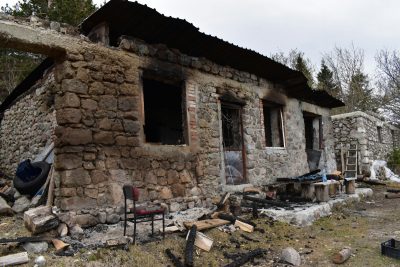Boko Haram & Cultural Erasure: Reclaiming Lost Heritage

Sacked communitites are repopulated with occupiers and renamed (Image: Natasha Latinovska @Pexels)
When Communities are Displaced and Lose Their Identities
Extremism, Erasure, Displacement
Boko Haram and its offshoot, Islamic State – West Africa Province (ISWAP), have terrorized northeast Nigeria and the Lake Chad region for over a decade. Their violent campaigns have razed villages, burned mosques and churches, abducted women and children, and displaced millions. Whole communities have been forced to flee or resettle, leaving behind ancestral lands and living memory.
As extremists seize control, they often rename towns and communities to suit ideological narratives. Indigenous place names vanish. Traditional symbols are destroyed. This process aligns with what scholars call cultural genocide or ethnocide: when a group’s identity and heritage are systematically erased, even without mass killing. They are erased through forced displacement, renaming, and social taboo.
This ongoing crisis in the Lake Chad Basin has forced over 3.1 million internally displaced persons and 320,000 refugees across Nigeria, Chad, Cameroon, and Niger, many uprooted from their entire ancestral homelands.
The crisis has decimated local populations, ethnicities, and traditions. When communities scatter into camps, speech patterns, rituals, histories, and dialects risk fading into silence. Without safeguarding, these intangible cultural heritages: oral stories, music, rhythms, and knowledge can vanish within a generation.
These people experience a collective trauma, yet the evidence is hidden in plain sight. Boko Haram’s scorched-earth tactics of village razing, church and mosque burnings, and mass abductions have destroyed physical markers of heritage. In one recent attack, Boko Haram displaced over 4,000 Christians from multiple Borno state villages, burning churches and homes in the process. In earlier attacks, dozens have been killed and entire towns erased from maps.
Tragically, as displaced populations resettle, they often take new names for themselves, choosing assimilation in the hope of safety. Traditional town names changed by occupying armies may be upheld under new administrative regimes. Over time, younger generations grow up disconnected from their real heritage. The result? Entire community histories slip into oblivion. We must stop this cultural erasure before it’s too late. We must act urgently to preserve endangered cultures by documenting oral histories, songs, and local languages, protecting them before they vanish. We must support camps and displaced communities by recording traditions and teaching them to children. There is an urgent need to identify renamed places within national memory frameworks to honor what once was. It is equally important to fund storytelling and art projects led by affected communities (audios, documentaries, photo archives), while integrating local heritage into education in displacement settings.
The ongoing silent ethnic and cultural erasure in West Africa is not just a Nigerian issue. It’s a continental challenge. When one people are erased (by force or forgetfulness), the human family loses richness and depth. Rebuilding peace isn’t just about roads and shelters. It’s about resurrecting communal memory, restoring ancestral identity, and ensuring survivors can pass their heritage to the next generation.
Watch the Short Video
Recommended: Vanishing Echoes: Black Populations Are Disappearing
White-Washed: The Missing Black Populations of North Africa
Feelnubia – Where Memory Lives | Home of Africa’s Intelligentsia
#Feelnubia #NorthAfricaErased #BlackHistory #PanAfricanism #Feelnubia #AfricanHeritage #BlackExcellence #ReclaimAfricanHistory #KnowYourRoots #HiddenHistories #BlackIdentity #DecolonizeNarratives #DiasporaStories #HomeofAfricasIntelligentsia
